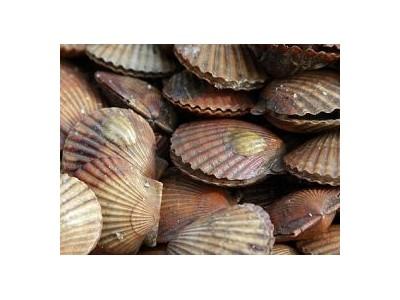Chinese Investors Eye $200 million Russian Seafood Aquaculture Project

RUSSIA - Chinese investors have unveiled plans to invest about US$200 million with the aim to launch a new seafood aquaculture project in Russia’s eastern Primorsky Krai region.
Under the plan, the farm will produce scallops, mussels and sea cucumbers. It is expected that some 1,000 new jobs will be created at the facility in Primorsky Krai as part of the investment. Chinese company Lien Wen aims to launch the designed aquaculture facility in 2017, and the investment’s pilot phase is expected to take three years.
The project was announced following a meeting between Evgeny Polyansky, the deputy governor of the Russian region, and He Tshenvey, the deputy secretary general of the China Overseas Development Association (CODA), as reported by local business daily Zolotoy Rog.
Tshenvey said that Chinese investors were attracted to the Russian region by the positive investment climate around Vladivostok, the capital of Primorsky Krai.
Local industry representatives say that the investment marks a much expected expansion by Chinese investors who have long planned to establish a presence in Russia’s seafood sector.
“The Chinese have a strong interest in such bioresources as sea cucumber, shrimp and scallops,” said Vladimir Zemskov, the general director of local industry player Gideon.
According to Zemskov, the Chinese investors “have long tried to establish export and import relations with Russia in this field, but, until now, without success.”
Primorsky Krai borders with north-eastern China and North Korea, and covers a total area of 165,900 sq km. The region has a population of less than 2 million inhabitants.
Set up in 2004, The CODA says it is a non-profit social organisation, established with the aim to provide services for Chinese companies that are seeking opportunities for foreign investments and development.
Jaroslaw Adamowski - Freelance journalist based in Warsaw, Poland
Có thể bạn quan tâm
 More Australian Prawn Farms Report White Spot Disease
More Australian Prawn Farms Report White Spot Disease Following the announcement on 2 December of a white spot disease outbreak, Australian authorities have now confirmed that the disease has been detected
 Western Australia Implements Import Restrictions on Queensland Prawns and Worms
Western Australia Implements Import Restrictions on Queensland Prawns and Worms Western Australians are being urged to keep to new import requirements to prevent the establishment of white spot disease, following its detection on prawn farm
 Caribbean Spiny Lobsters Found to Get Food From an Unexpected Source
Caribbean Spiny Lobsters Found to Get Food From an Unexpected Source Researchers from the UK's University of Plymouth have found that chemosynthesis plays an unexpectedly essential role in supporting populations of the lucrative